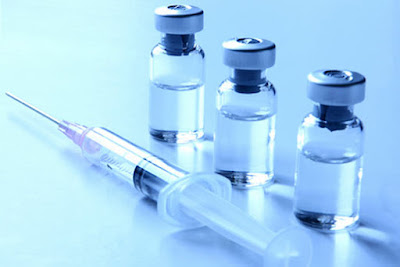The thyroid gland is an integral part of the endocrine system. This butterfly-shaped organ regulates the key hormones that affect the body's numerous activities, such as how well your body operates physically and cognitively. Hence, if you are not feeling well and show no signs of illness, your body may indicate that you have thyroid disease. Bear in mind that your body is a complex system operating on various conditions. Yet, many things might accumulate over time and disrupt your body's hormonal equilibrium.
Thyroid issues are difficult to identify on their own. This is due to the fact that this disease can be confused with other health conditions, such as menopause or cognitive impairments. If you are experiencing any of the following indications or symptoms of a thyroid problem, it may be time to see a thyroid expert specialist doctor in NJ.
Your weight fluctuates –
Suppose you are experiencing a considerable increase or decrease in weight, but you have not changed your portions or eating habits. In that case, you are likely vacillating between hypothyroidism and hyperthyroidism, which is an overactive thyroid.
Both of these conditions can influence your metabolism, which may directly impact your weight.
Change in your appearance –
In addition to an increase or decrease in your weight, look for changes in your appearance, including weaker or more brittle hair, dry, redness in your body, itchy, thinning, or irritated skin, swelling in your joints, swelling at the base of your neck and more. It may be easy to dismiss these issues as normal skin issues. Still, if you notice changes in your skin’s appearance along with one or more of the various factors mentioned here, it may be time to have your thyroid checked by a thyroid specialist doctor in NJ.
Fatigue or loss of energy –
Hyperthyroidism can make it quite problematic for you to fall asleep at night, thus leading to fatigue. In contrast, hypothyroidism is caused due to the lack of thyroxine, which can deplete all of your body’s energy.
Additionally, with both of these conditions, you may be likely to experience weakness in your body that may cause your body to feel tired and worn down.
Slowed heart rate –
Your thyroid health may also impact your cardiac health. Hypothyroidism, for example, causes an insufficient quantity of thyroid hormone, which may result in a slower heart rate. Inadequate thyroid hormone can cause your arteries to lose their flexibility over time, resulting in high blood pressure since blood has to work harder to circulate.
You feel hot or cold all the time –
Hyperthyroidism may also be due to heat sensitivity or excessive sweating. While if a person is suffering from hypothyroidism, then they may struggle to keep warm at all. When the body’s thyroid works appropriately, its cell can produce 65% energy and 35% heat. The person suffering from the thyroid condition will either be producing too much or not enough thyroxine. This change in the hormonal level will confuse the body into producing either too much heat, not enough energy, or vice versa.
Aside from that, weight can influence an individual's sensitivity to heat and cold, as the heavier your body, the more likely you will remain heated. People who have an underactive thyroid are more likely to be overweight or obese, which makes them more prone to feeling hot. On the other hand, those with an overactive thyroid will struggle to maintain or acquire weight, which may decrease body weight and fat, making the body more susceptible to cold.
So, if you are facing any of the above-listed signs or symptoms of a thyroid problem, it might be time to get your thyroid checked by a specialist. If you are searching for a renowned thyroid specialist or allergy doctor in NJ, look no further than the NJ Doctors Urgent Care team. Give a call today at (973) 530-4362 or (732) 952-3627, or (973) 695-0885 to have a consultation with our expert!









